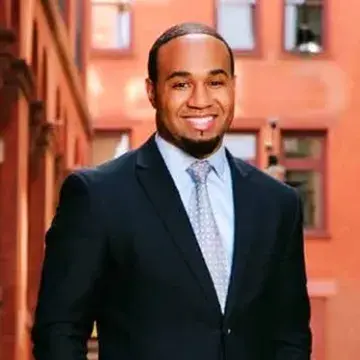Transcending Through Education

Born to a drug-addicted mother, abandoned at birth and passed through multiple foster homes before being adopted by a Newport, R.I., family, Noah Kilroy ’13 was selling crack cocaine by age 16. Jailed twice in Rhode Island, he was arrested in Florida for trafficking at age 20 and faced a 15-year sentence. When he called his adoptive mother for help, she hung up. He was all alone – and that was a turning point. Today Kilroy, having gained significant experience as an assistant city solicitor for the City of Providence, maintains a solo practice and is co-founder of Transcending Through Education Foundation (TTEF), which helps former convicts obtain higher education.
Alone Time: He spent 18 months in a Florida prison, which “did what it was supposed to do. I was forced to think about my actions and take a moral inventory of myself.” He read books on black history, psychology, and sociology; after his release, he achieved a 3.7 GPA at the Community College of Rhode Island and transferred to Salve Regina University.
Right to Vote: Working on a state initiative to give former felons the right to vote, Kilroy met Andres Idarraga, a former drug dealer headed to Yale Law School, who became a role model. The only law school that gave Kilroy a chance was the University of Detroit Mercy School of Law. After placing in the top 20 percent his 1L year, he transferred to RWU Law.
Wall of support: Through Idarraga, Kilroy met A.T. Wall, Director of the Rhode Island Department of Corrections, who is now his mentor. Skeptical at first – “due to living that street life and knowing you can’t trust everyone” – Kilroy is deeply grateful for Wall’s support, which included asking Providence solicitor Jeffrey Padwa to hire Kilroy as an intern. Kilroy joined Padwa’s office full-time in 2013 and now handles city ordinance violations and other cases.
Giving Back: In 2012, Kilroy, Idarraga, and a third drug dealer-turned-law-school-graduate, Bruce Reilly, launched TTEF, which gives scholarships to former offenders. “You have to be willing to make sacrifices,” Kilroy says. While working at a Taco Bell during college, he served guys he knew from the street. “It was humiliating. But some of those same guys are now clients of mine. If you put in blood,sweat, and tears, society will give you a chance again – if you’re serious about your rehabilitation and giving back to society.”
